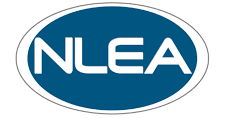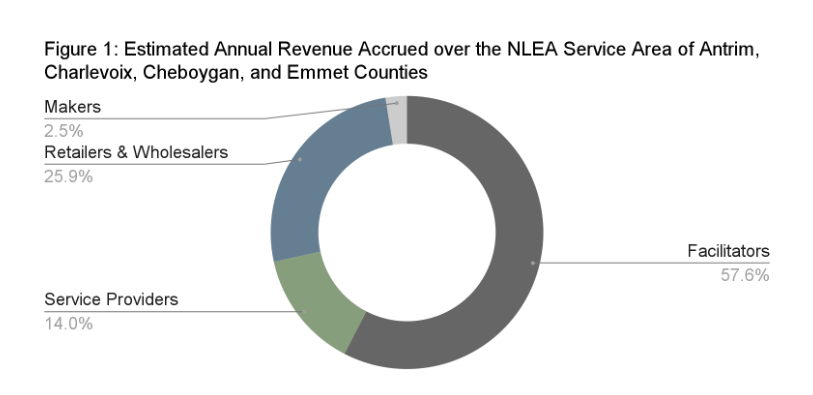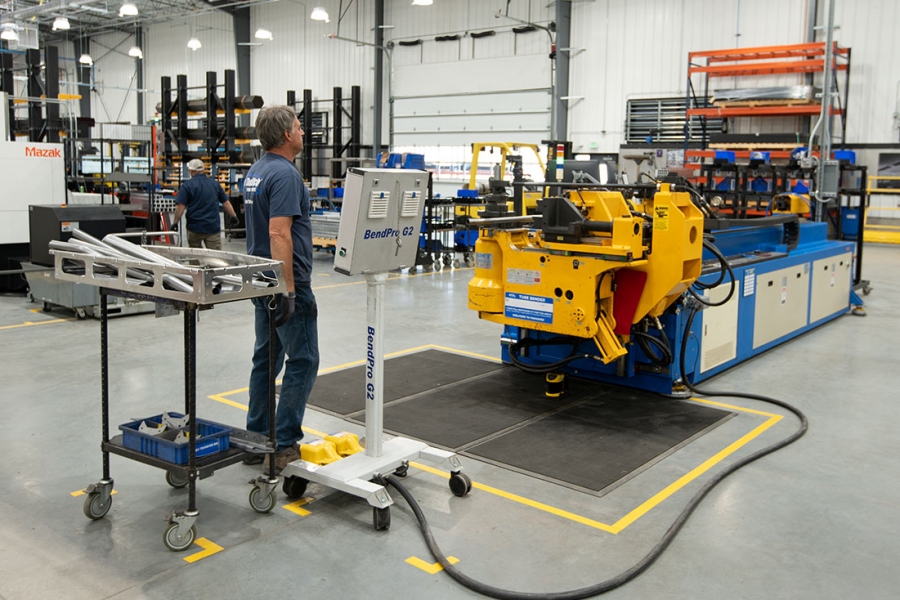
Proving Ground for Outdoor Rec
By: Sam Bailey, Strategic Initiatives Manager, and Abigail Kendziorski, NLEA/DTE Energy Foundation Summer Intern
From large tracts of state land for hunting and fishing; to lakes and rivers for every watersport; to twisting trails for bikes, snowmobiles, and ORVS; to hills for boarding and skiing, the places that are fun to play are also the perfect place to test and refine outdoor products. The outdoor recreation industry plays an important role in Northern Lower Michigan’s economy and businesses are seizing the opportunity to use the natural environment as a proving ground for various products.
The outdoor recreation industry in Antrim, Charlevoix, Cheboygan, and Emmet Counties generates over $151,000,000 in revenue annually and employs over 2,705 people according to estimates from Duns & Bradstreet Hoovers. 1 The two largest sub-sectors that contribute to these figures are outdoor recreation facilitators and outdoor recreation retailers and wholesalers. Facilitators are businesses offering access to outdoor assets to consumers, such as golf courses, marinas, and campgrounds. Retailers and wholesalers, who are vendors of outdoor recreation products, play a crucial role of getting equipment and clothing to consumers; the sector accrues over $39,268,000 in annual revenue. While these sectors are significant, there are benefits to growing the ecosystem of businesses researching, designing, and producing outdoor recreation equipment and soft-goods. Local producers generate over $3,840,000 in revenue, but they are uniquely positioned to use the natural environment of Northern Lower Michigan to test and refine their products.
While the region is a haven for winter fun, some local businesses use winter to innovate. Shaggy’s Copper Country Skis in Boyne City realized the area is more than a ski destination; it can also be the birthplace of ski equipment. With their factory situated less than five miles from Boyne Mountain, the company can easily design, test, and refine prototype skis; “we can really take a product from an idea one morning, and the next morning is skiing on that product.” Another company testing its products on the slopes is SkierQuest, a manufacturer of custom, protective ski equipment. Tony Blancato, the company’s president, shared that all their products “are designed, prototyped, and tested in Michigan.” Young racers seen training in gates at Boyne Highlands are there to improve themselves, but some may also be providing crucial feedback that influences the next generation of SkierQuest products. While ski resorts are well-traveled destinations, there is also innovation happening off the beaten path. In Harbor Springs, Rick Byer spent over twenty years designing, testing, and manufacturing tow-behind groomers for his company Snow Groomers. The products are used around the world for dog sledding, cross-country skiing, fat tire biking, skate skiing, and more. When the company was sold to a family in Utah, Rick stayed on, testing products in the area. Northern Michigan’s spirit of innovation and access to testing environments is not limited to the (in)famous winters.
Running shoes, snowmobiles, bikes, ORVs, and hiking boots are used everyday on the hundreds of miles of trails in Northern Michigan, but not many are original prototypes. Wired Off-Road is a startup at the intersection of electrification and outdoor recreation, building kits for users to convert gas-powered dirt bikes to electric. With their first product set to launch in the spring of 2023, the team is deep into testing their prototype. Co-founder David Kloiber shared that, “the Michigan DNR’s ORV trails are a huge resource that we take advantage of because they cover sand, dirt, wooded, rocky, and hilly terrain. We spend many weekends in the greater Gaylord area riding from DNR trailheads or family cabins.” While most people ride for enjoyment, the Wired Off-Road team works hard to push their prototypes to the limit to ensure they have a quality product for their customers. For those interested in a human-powered off-road adventure, the region’s mountain biking community has grown rapidly in recent years. Brandon Inglehart owns and operates Serendipity Cycles in Harbor Springs where he builds custom bicycle frames and wheels for cyclists. Combining his industry education with his personal experience riding the region’s paved and off-road trails, Ingelhart is able to fabricate custom frames whose geometry is unique to each customer’s dimensions, riding style, and intended use. Inglehart emphasized how rewarding it is to produce and sell here where the bikes can be used, remarking that “I get great joy out of riding my bike and seeing customers using the bike frames I custom built and being so happy with their product.” In Northern Lower Michigan, innovation and testing don’t just take place on land.
If Michigan is the Great Lakes state, Northern Lower Michigan embodies that name and then some. 44.8% of Antrim, Charlevoix, Cheboygan, and Emmet Counties’ surface area, or 1,684 square miles, is water. The region’s networks of lakes, rivers, and streams create the ideal proving ground for outdoor equipment. Jason Thelen, founder of Little Bay Boards, can’t imagine making his eco-friendly, hollow-wood standup paddle boards anywhere else. Our region’s unparalleled access to rivers, inland lakes, and the Great Lakes offers Thelen the chance to test his prototypes in a variety of conditions. The result of Thelen’s hard work refining his product is a growing company distributing its boards around the world. Looking forward, the region is positioning itself as a testing ground for electrification in the pleasure boat industry. An expanding network of Aqua superPower chargers at local marinas, a high concentration of experienced marine mechanics, and access to the Great Lakes, inland lakes, and rivers give the region’s unique advantage in the future of the boating industry.
When taken together, Northern Michigan’s outdoor assets create not just a fun environment for hobbies but also a proving ground for innovative companies in the outdoor recreation industry. If the region can foster these local companies, retain their operations, and entice other companies to test their products here, creating outdoor recreation products locally offers a path to family-supporting jobs, a twelve-month economy, and attracting talent to the region. While not a silver bullet, fostering this industry is a valuable tool in uplifting the Northern Michigan community.
1 Data was accessed through Duns & Bradstreet Hoovers in 2020 by Michigan Economic Development Corporation staff. The majority of values reported are imputed, or estimates. To learn more about D & B Hoovers visit their website.
This entry was posted in Press Releases, on August 13th, 2022
|
|
|
|
|
|
|
|
|
|
|
|
|
|
|
|
|
|
|
|
|
|
|
|
|























